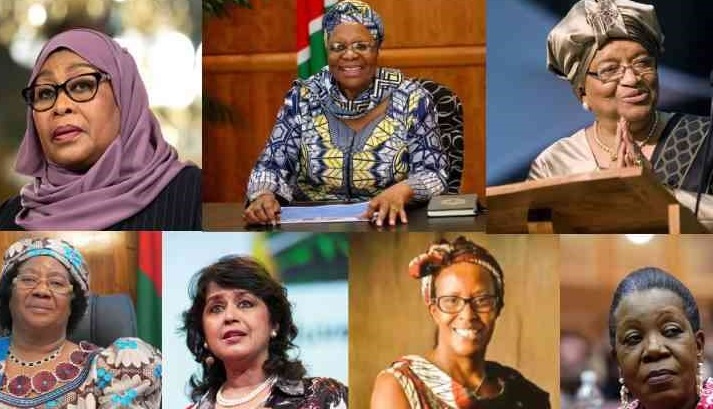The sharp crack of heels cutting through the marble echoes through the corridors of power across Africa; a wave of change flowing across different parts of Africa. These are not just footsteps, they are the measured strides of a revolution in motion, carried by women who have refused to accept that leadership is a man’s domain. They carry briefing books and baby bottles; they read budget lines and bedtime stories. The moment a decision is finalised, they rise. Not as an exception, but increasingly as a force. This is what governance in heels across Africa entails; uneven, hard-won, sometimes symbolic, often substantive, always consequential.
The Changing Face of African Leadership
African politics is undergoing a profound transformation. Across the continent, women are shattering glass ceilings, challenging traditional power structures, and redefining what it means to govern. From boardrooms to parliament halls, from local councils to presidential palaces; African women are not merely participating in politics, they are leading it, reshaping it, and proving that governance knows no gender.
This phenomenon represents more than just numerical increases in female representation, it shows a fundamental shift in how African societies view leadership, governance, and the role of women in shaping the continent’s future. The rise of women in African politics is not happening in isolation, it is part of a broader global movement toward gender equality in leadership, yet it carries distinctly African characteristics shaped by the continent’s unique cultural, historical, and socio-economic contexts.
According to the Inter-Parliamentary Union’s 2023 report, Rwanda leads the world in women’s parliamentary representation, with women occupying 61.3% of seats in the lower house. This achievement is not a rare type but part of a growing pattern across the continent. African countries consistently rank among the top performers globally for women’s political representation.
South Africa follows closely with 46.4% female representation in its National Assembly, while Namibia boasts 44.2%. These figures are particularly striking when compared to established democracies. The United States, often considered a beacon of democratic governance, ranks 67th globally with only 27.9% women in Congress, while the United Kingdom sits at 34.9%.
The African Union has been instrumental in driving this change through its Protocol to the African Charter on Human and Peoples’ Rights on the Rights of Women in Africa, commonly known as the Maputo Protocol. This landmark document has created a legal framework that mandates equal participation of women in political processes.
Beyond parliamentary representation, African women have made significant progress into executive leadership. Since 2006, the continent has witnessed the election or appointment of female presidents and prime ministers in countries including Liberia, the Central African Republic, Ethiopia, and most recently, Samia Suluhu Hassan’s ascension to the presidency of Tanzania following the death of President John Magufuli in 2021.
The Grassroots Revolution
While international attention often focuses on women in high-profile national positions, some of the most significant changes in African governance are occurring at local levels. Across the continent, women are being elected as mayors, council members, and traditional leaders, bringing new perspectives to community governance.
In Nigeria, the 2019 elections saw a 35% increase in women elected to local government councils compared to 2015. Notable among these is Aisha Binani, who made history as the first woman to win a gubernatorial ticket from a major political party in Northern Nigeria, challenging traditional barriers in one of the country’s most conservative regions.
The impact of women’s participation in local governance extends beyond individual achievements. Studies conducted by the African Development Bank demonstrate that local governments with higher female representation tend to invest more in social services, education, and healthcare infrastructure.
The Uphill Battle
Despite remarkable progress, African women especially the ones in politics continue to face significant challenges that limit their full participation and effectiveness. Violence against women in politics has emerged as a persistent threat, with the Inter-Parliamentary Union reporting that 44% of African women parliamentarians have experienced psychological violence, while 25% have faced physical violence. These experiences call for the need for comprehensive legal frameworks and cultural shifts to protect women’s political participation.
Financial barriers remain another significant obstacle. Research by UN Women reveals that women candidates in African elections typically face 40% higher campaign costs than male counterparts, primarily due to additional security requirements and the need to overcome voter skepticism about women’s leadership capabilities.
Cultural and traditional barriers also persist. In many African societies, traditional gender roles continue to influence perceptions of women’s suitability for political leadership. A 2022 study by the African Governance Institute found that 34% of respondents across eight African countries still believed that men make better political leaders than women, indicating the ongoing need for cultural transformation alongside legal and institutional changes.
Technology as an Equalizer
Imagine a scenario whereby a woman community leader’s smartphone beeps constantly: a WhatsApp message from a resident about water shortages, a Twitter discussion on youth unemployment and a Facebook live where she’ll speak to her community later tonight. The tools of engagement have evolved indeed and the main essence is to listen, respond and serve.
The digital revolution has created new opportunities for African women in politics to overcome traditional barriers and connect with constituents in innovative ways. Social media platforms have become powerful tools for political mobilization, policy advocacy, and public engagement.
Esther Passaris, a member of Kenya’s parliament representing Nairobi County, exemplifies how African women politicians are leveraging digital platforms. Her strategic use of social media has enabled her to build a following of over 400,000 people across platforms, allowing her to communicate directly with constituents and influence policy debates in real-time.
The Evolution of Change
Each woman who steps into leadership carries with her the dreams of those who came before and the hopes of those who will follow. The rise of women in African politics represents one of the most significant political transformations of the 21st century.
From parliamentary chambers to presidential palaces, from local councils to international organizations, African women have demonstrated that effective governance knows no gender boundaries. They have shown that governance can be both strong and compassionate; leadership can be both decisive and inclusive; and power can be both effective and empowering.
The Path Ahead
The sound of heels on marble floors will continue to echo through the corridors of power across Africa, but it will no longer be the sound of revolution; it will be the normal rhythm of governance, the expected pattern of democracy, the natural blend of societies that have learned to value leadership regardless of the gender of those who provide it.
The future is being written by new hands, spoken with new voices, shaped by new dreams. And in that future, the question will not be whether women can lead, it will be how much better we all become when everyone has the opportunity to contribute to the governance of our shared destiny.
The legacy of women in the corridors of power will not be measured in the laws they pass or the offices they hold, but in the doors they leave open for others to walk through. It will be the courage to govern with empathy, the wisdom to balance strength with compassion, and the vision to make leadership a shared space for all. Their legacy will be a continent where power is no longer defined by gender, but by the good it does for people.





Comments are closed.